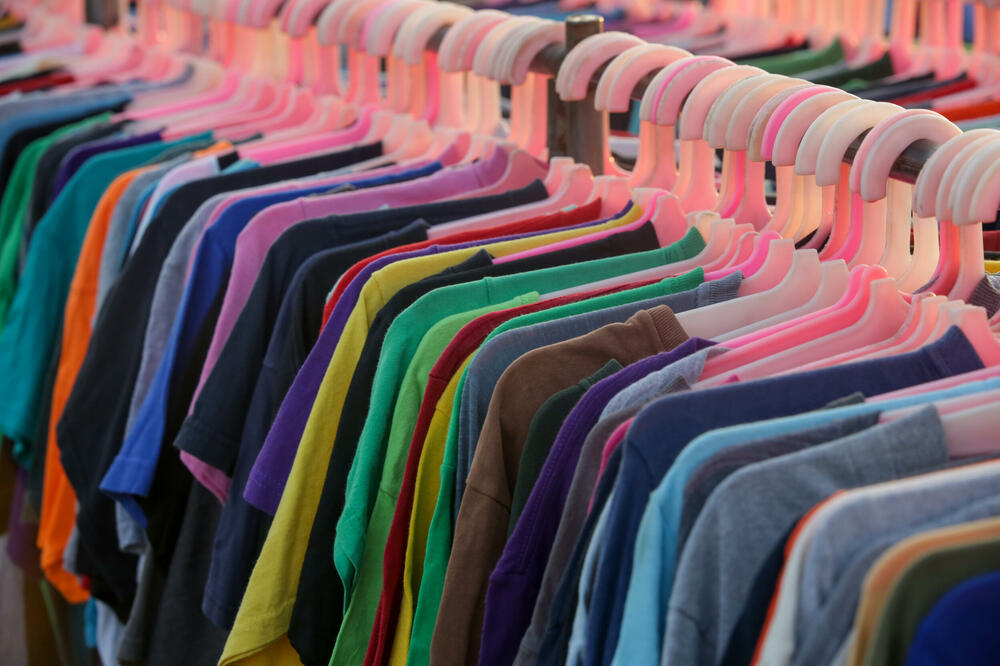France's fast fashion law recently passed unanimously in the lower house of Parliament, a rare approval in the National Assembly, where the government does not have an absolute majority and often faces strong opposition.
However, this unanimity does not mean that everyone welcomes the government's methods.
The new regulations will be applied by companies that throw out a certain minimum number of products every day, the threshold of which will be defined later by a new regulation.
In the focus of this law are giants in the field of fast fashion, such as the manufacturer Sheina and the online platform Temu - both companies based in China.
Such companies will have to clearly display messages on their websites that indicate the environmental impact of their products and encourage customers to recycle clothing items - otherwise they will face fines of up to 15.000 euros.
The new ecological scoring system will evaluate fashion companies. Those who do bad business will have to pay a fee of five euros initially, and from 2030, up to ten euros per item.
The government will also ban advertising of fast fashion and their products from 2025. Violation of that law will be sanctioned with fines of up to 100.000 euros.
The law still needs to get the green light from the French Senate and could come into force within the next few months.
"We won the culture battle"
For Julia Faure, fashion designer and president of the En Mode Climat group, which gathers around 600 companies that produce fashion clothing in an environmentally sustainable way, the bill is "great news".
"We won the cultural battle, because fast fashion is an environmental, social and cultural disaster that destroys everything except the luxury sector of the market," she points out in an interview with DW.
Faure believes that the government is thereby sending the right signal when it comes to fashion products made from cotton and local production, which will receive a good environmental rating, while those produced in distant destinations and from synthetic fabrics will receive a bad rating.
"However, we still need to be careful and ensure that the threshold for defining fast fashion companies is not set too high," adds Faure.
But Philippe Moati believes that the threshold should not be too low, to ensure that it does not include French brands. He is a professor of economics at the University of Paris and the founder of the Parisian market research company ObSoCo.
The right methods?
But he does not agree with the government's methods.
"The draft law stigmatizes the clients of those brands, who, according to the study we are conducting, are less educated and have a worse financial situation. It is important that they can also afford fashion items in order to feel part of society," he says in an interview with DW.
The economic expert estimates that what he calls "ultra-fast fashion" makes up approximately three percent of the French fashion market - there are no exact parameters on this.
Moati is in favor of stricter regulation of fast fashion, but with existing mechanisms.
"The government should apply French laws, such as a two-year guarantee for fashion items, a ban on selling below cost and an obligation to calculate discounts through the use of a realistic reference price," points out Moati.
"In addition, we should introduce import duties on all textile imports — not only those that cost at least 150 euros as now," the expert urged, adding that ultra-fast fashion had the advantage of producing very small batches of products, which also meant that there were practically no unsold items.
Shane, Temu, Zara and H&M either declined DW's request to discuss the matter or did not respond at all.
France could be an example for others
Gilde Minville, director of the Economic Observatory of the Institute of French Fashion in Paris, believes that time will tell if the government's approach is correct.
"It's uncharted territory - we need to test what works and what doesn't," he tells DW. "Either way, it's crucial to remind consumers of the devastating environmental impacts of fast fashion."
For him, the unanimous vote in parliament shows that French politicians have understood the need for urgent action.
"The bill is a reaction to the deep crisis that the pret-a-porter [designer ready-to-wear] sector has been facing since 2022, with a number of brands declaring bankruptcy," Minville said.
"France, the cradle of fashion, could now pave the way. These rules should be extended to the whole of Europe because it is a single European fashion market," he says.
Several disgruntled reactions could be heard in the National Assembly, such as that of Antoine Verlorel-Marques, a parliamentarian from the Loire department in central France, a representative of the conservative Republican Party.
"In the 1980s, fashion companies in my district employed about ten thousand people, but that number has dropped to two thousand today, after the production was moved to Asia," he tells DW.
"Only recently have these companies started hiring workers again, because there is a trend to buy items that are locally produced. "Fast fashion has now created a new pressure to reduce costs - we have to take countermeasures," Vermorel-Marques points out.
However, this politician does not welcome all members of the draft law.
"Banning advertising will inhibit the market instead of regulating it. We should focus only on an environmental scoring system that will allow us to make companies pay for the negative environmental and social impact of their products," the MP emphasizes.
Climate targets 'need more action'
But Pjer Kondamin, spokesman for the Stop Fast Fashion group, which includes several non-governmental organizations that fight for the protection of the environment, believes that the new rules do not go far enough.
"The threshold defining fast fashion should be directly contained in the law and be low enough to include French companies, such as the sports equipment retail chain Decathlon," he says in a statement to DW.
"Companies should also pay a minimum compensation if they receive a negative environmental rating, something that has not been included in the plans so far."
He added that fast fashion companies should be required to publish sales statistics for France.
"It's the only way we can really understand what we're facing and try to work towards fulfilling the Paris climate agreement," Condamine said, encouraging French citizens to buy "no more than five new fashion items a year - not 50 like currently the case".
Bonus video:





